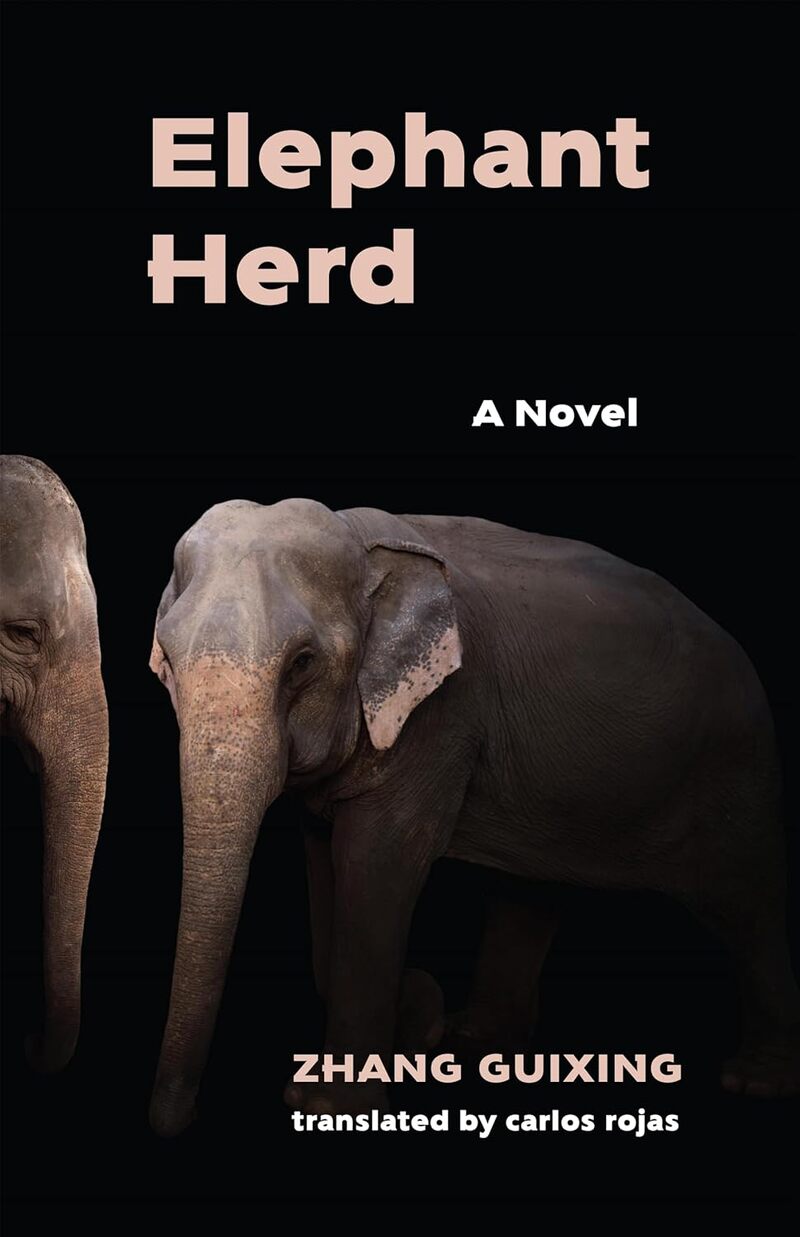Zhang Guixing’s Elephant Herd is as complicated and teeming as the rain forest in which it is set. Within this rich natural environment is a family drama, a political drama, and what amounts to a coming-of-age novel in an incredibly violent, and seemingly amoral, world.
The main drama revolves around Shi Shicai, referred to throughout as “the boy”, in his search for his uncle, Yu Jiatong. His search, and his motivation for it, dominate the novel, even as the background in which the story is set begins to take over.
In the foreground are the boy and his family, a family bearing traces of a dark magic realism. The boy’s mother quacks. His father eats paper and books. Three elder brothers have died in service to the communist cause. His uncle, Yu Jiatong, is the leader of the Yangtze River Brigade of the North Kalimantan People’s Army. As the novel jumps back and forth in time, we discover that when the boy was eight, he was charged with watching his three-year-old sister, Junyi. She was eaten by a crocodile in a moment that underscores the general sensibility of the novel.
The boy rushed down to the riverbank. A whirlpool seemed to have formed in the river, and there were several eddies. An enormous black body appeared in the eddies. There was a long tail. Sharp teeth. A gaping mouth. Scales. There were small hands. Small feet. Black hair filled with wildflowers. A tiny pair of terrified eyes. A silent mouth. Junyi! Junyi was also in the eddy, Hualala, an even larger eddy appeared, and a shiny black body sank with Junyi into the water. Then the water became still again, and the eddies slowly drifted away.
The crocodiles are a threat throughout and demand the attention of all of the characters, in at times surprising ways. Perhaps the biggest danger is more subtle. The degree to which Zhang Guixing presents the setting from one sentence to the next signals a natural world that is beginning to absorb the humans, stripping them of anything that might separate them from the natural world. At best, the humans have tenuous social connections.
Families are falling apart. The sociopolitical situation of Malaysia, here specifically Borneo, rests on a government that is at a somewhat forgotten war with the Communists originally, but now vaguely, supported by China. Ethnic and external national affiliations including waves of Chinese through the years add to problems of generating a shared sense of community.
The boy begins his search by traveling into the rainforest, assisted by his friend and classmate Dezhong, who is ethnically Iban. Dezhong will escort the boy as far into the rainforest as his own village. As they head up river, they encounter two men wearing North Kalimantan People’s Army badges. The description is telling, in part because it shows how the rainforest absorbs humans, and in part for what it says about the state of the political conflict.
Rail-thin, with bloodshot eyes and clothing that was completely in shreds, the men resembled husks of insects trapped in a spider’s web. They were in the process of eating some small animals they had charred to a crisp, and they devoured the creatures whole—skin, bones, and all. The men were ethnically Chinese and appeared to be about forty-years old.
With this encounter, the men toss their badges into the river and so retreat from any social-political affiliations they had. The two young men have several other encounters as they paddle upriver that offer variations of this theme, variations that might as well be encounters with crocodiles.
Dezhong’s family, indeed the entire village, is presented as “friendly” and welcoming. During a week of torrential rains, the boy stretches his hand out a window to feel the rain, and feels a string of human skulls. The boy is no innocent. Along the journey upriver, he fantasizes about the decapitated head of his Second Brother, and his dead lips kissing his girlfriends. Whether collected by the Iban or other groups, human skulls seem to be little more than trophies or evidence of retribution.
Elephants, however, might be the one factor that renews a shared sensibility among the varied social networks. Elephants and bulls’ tusks remain a subtext in the novel. The family has a story about the birth of the boy accompanied by an elephant. Individual prowess is measured by the number of tusks and/or killings of bulls one has. In a notable scene late in the novel, the boy and Yu Jiatong go hunting. After days in the rainforest, they finally see a herd. Notably, his uncle, who has earned much esteem for the number of kills he has, doesn’t attempt a kill.
Elephants are also set in a historical context that suggests humans can bond over their shared relationship with them, one including war, violence, and ivory. Early on, Zhang Guixing recounts such details as “in the year 326 India’s King Potus had two hundred elephants, which carried archers to defend against Alexander the Great.” British hunting expeditions slaughtered bull elephants in the early 17th century. The 18th century saw similar slaughters by the Dutch.
By the late 20th C, however, this seems to have fallen apart in surprising ways. One way, however, comes from the elephants themselves.
Now, however, hunting expeditions can no longer find any elephants at all. Have they gone extinct? No one was willing to entertain this possibility. Instead, experts believe that after having been hunted for several centuries, the elephants managed to develop a variety of techniques for protecting themselves and avoiding humans. The elephants developed these techniques in response to their local conditions and passed them down from one generation to the next, such that they eventually came to resemble hermits in the rainforest, completely isolated from the outside world.
Perhaps it is that isolation that offers the only means of survival in a world where humans are constantly at war with each other and with the natural world.

